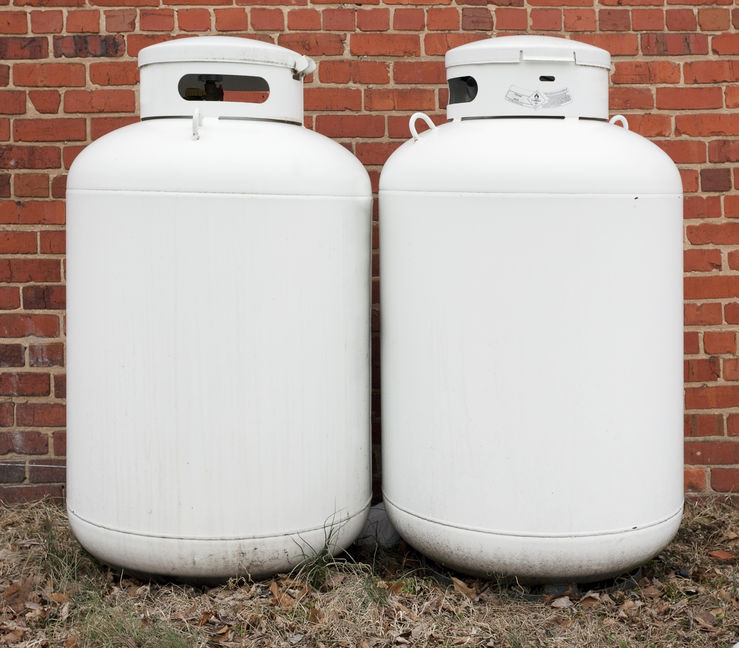Comparing Standby Generator Fuel Types
When it comes to choosing a standby generator, one major consideration for many homeowners is the fuel source. Most standby generators operate using one of three fuel sources: diesel fuel, propane, or natural gas. Today, we’ll compare standby generator fuel types to help you make the best decision for your needs.
Diesel Fuel
Diesel generators are typically divided into two parts — a diesel engine and an electrical generator — and are sometimes used to power homes not supported by a power grid. These types of generators are extremely common in commercial buildings but can be found in homes and small offices as well.
Pros
Diesel has the highest energy density of the three main types, so diesel engines require the least amount of fuel per kilowatt hour.
The generators are often considered safer, as the fuel is less flammable and less explosive
Diesel generators are typically smaller in size, compared to other generators with similar capabilities using different fuel sources
These types of generators are very reliable and have a long lifespan
Cons
Cost of fuel will fluctuate with the cost of diesel
The generator can have difficulty starting in extreme temperatures
Diesel generators tend to cost more due to Tier 4 regulations
In order to run the generator for longer periods of time, additional stores of fuel must be kept
Diesel generators are often louder than their propane and natural gas counterparts
Fuel will degrade over time and requires additional maintenance
Propane
Propane, a type of liquefied petroleum gas (LPG), is a flammable, colorless gas present in natural gas and is used as a bottled fuel. It is commonly used to provide power to grills and stoves and is another option for fueling a standby generator.
Pros
Propane is considered the “cleanest” of the three main types of fuel
Fuel is available even when gas pumps aren’t running
The shelf-life of propane is considered limitless
Propane doesn’t have temperature-related problems and is a good option for those in colder climates
Cons
Propane usually costs more than other fuel types
Generators have a shorter life expectancy than that of some other fuel types
Smaller propane tanks often cost more and there is a premium for delivery of a larger tank of propane
Natural Gas
Natural gas is a flammable gas consisting of methane, nitrogen, and carbon. In most cities and towns, natural gas is a readily-available utility. Many homes already rely on natural gas for heating and electricity purposes, making natural gas a convenient fuel choice for these homeowners.
Pros
Natural gas generators are connected to a gas line, so fuel is readily available
The generators can be run for long periods of time with no additional stores of fuel needed
Natural gas typically costs less than other nonrenewable fuel sources
Cons
The generators typically have a shorter lifespan
Natural disasters may disrupt the flow of natural gas
Generators are often larger and require more space than their counterparts
Still Have Questions?
We’re happy to help! We’re a team of professionals passionate able helping out clients find the right generator for their needs. Whether you are just beginning to consider a generator purchase, or already own one and need help with maintenance, Midwest Generator Solutions is here to help.


ypm7z1
g37it6
Saved as a favorite, I really like your blog!
s1bhu5
OITzEcaMSWwfHt
j11abb
dpjq11
99owzd
I every time emailed this webpage post page to all my friends, as if like to read it next my contacts will too.
My homepage – vpn 2024
I was wondering if you ever considered changing the layout of your site?
Its very well written; I love what youve got to say.
But maybe you could a little more in the way of content so people could connect with it better.
Youve got an awful lot of text for only having 1 or 2 images.
Maybe you could space it out better?
Feel free to visit my homepage; vpn coupon code 2024
k7ptws
5kj8og
9tgtzy